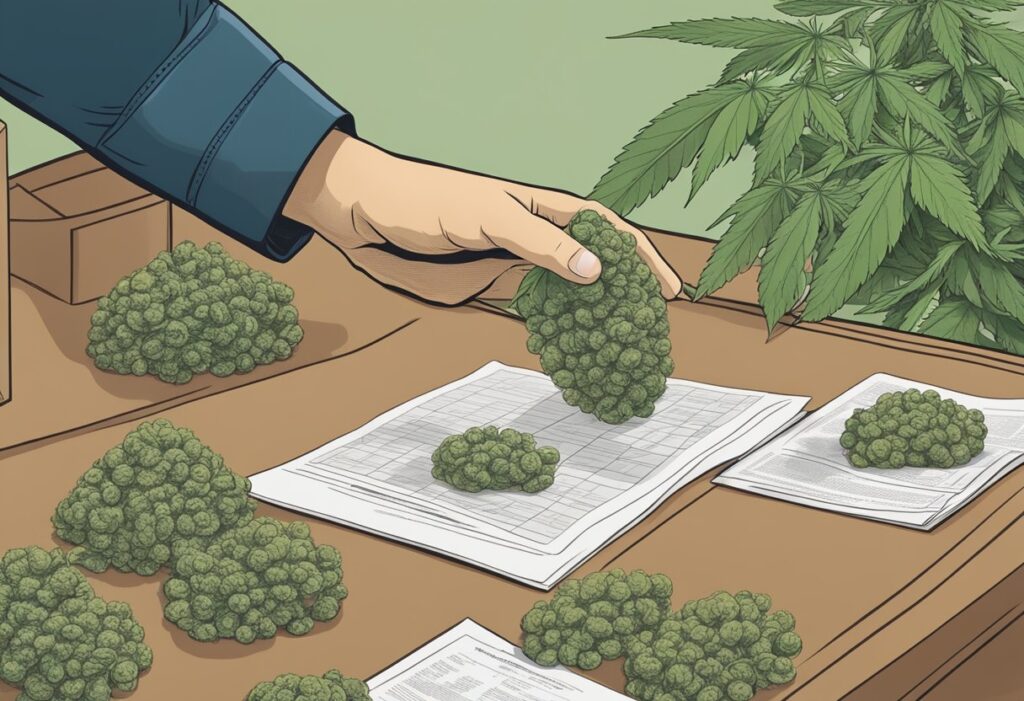
Your understanding of cannabis legislation in Canada should begin with a grasp of the federal Cannabis Act and its provincial counterparts. The Act and these regulations outline the responsibilities of Health Canada and law enforcement agencies in ensuring public health and safety.
The cornerstone of marijuana seed legislation in Canada is the Cannabis Act, which became law on October 17, 2018. This federal act lays out the legal framework for the control and regulation of cannabis, including the provision of seeds. Its fundamental aim is to protect public safety, prevent youth access to cannabis, and deter criminal activity. The Act also establishes the legal bounds for home cultivation.
The provinces and territories in Canada have additional regulations that complement the Cannabis Act. Each province decides specific regulations concerning the sale and distribution of cannabis seeds within their jurisdiction. They have the autonomy to tighten or maintain the federal government’s minimum regulatory requirements, tailoring policies to suit local public health and safety objectives.
Health Canada serves as the primary regulatory body, overseeing cannabis cultivation, production, and distribution. For seeds, this includes:
Health Canada collaborates with the Canadian Food Inspection Agency (CFIA) to enforce these regulations.
Law enforcement authorities play a crucial role in upholding these laws. Their responsibilities include:
Public Safety Canada supports law enforcement agencies to ensure these mandates align with public safety priorities. Together, these entities work to facilitate a regulated environment that protects youth and thwarts illicit market activities.

Navigating the legal landscape for procuring and cultivating cannabis seeds in Canada is essential for compliance and safety. Whether for personal or commercial use, understanding the regulations will ensure you engage in lawful activities.
When buying cannabis seeds in Canada, you must purchase from licensed sellers. These producers have obtained the necessary approvals from governing bodies to sell seeds for both medical purposes and recreational use. Cannabis seeds can be sold to adult consumers who are of legal age, which is 18 or 19 depending on the province or territory.
Remember that the sale and distribution of seeds is strictly regulated to ensure safety and health standards are maintained. The industrial hemp regulations also play a role in determining what type of seeds may be sold, focusing on low THC-containing hemp.
For personal cultivation, the law permits you to grow a limited number of cannabis plants from legally-obtained seeds. Below are the key requirements to follow:
It’s important to note that any seeds or plants from illegal sources may expose you to unapproved pesticides, violating health and safety standards. Always prioritize legitimate sources for your cultivation to avoid legal repercussions and potential health risks.

Your comprehension of the regulations surrounding marijuana seeds in Canada is essential, especially in terms of compliance with the Cannabis Act, enforcement of its provisions, and the public education efforts to promote safe use. Ensuring the legal circulation of seeds, enforcing regulations, and informing the public about safe and responsible use are key to minimizing potential harms.
Health Canada conducts regular inspections to ensure federal cannabis license holders, including seed producers, comply with the regulations. These cover various aspects of production, including the quality of seeds, adherence to physical security requirements, and proper labeling. Packaging standards are strict, requiring plain packaging and clear health warnings. A standardized cannabis symbol must be present to indicate THC content and warn of potential adverse effects.
If you’re involved in the exportation of cannabis seeds, it’s vital to understand that this activity is tightly controlled. You must not only comply with Canadian laws but also ensure that your operations are in line with the legal framework of the destination country.
Public education aims to inform you about the effects, potency, and safe storage of cannabis products, including seeds that can be used to grow plants for different forms of cannabis such as edibles, cannabis extracts, and cannabis topicals.
Health Canada’s public education efforts are multifaceted:
By abiding by these regulations and understanding the importance of safety and quality, you contribute to the lawful and responsible handling of cannabis seeds and products in Canada.
This section addresses common inquiries regarding the legal landscape of cannabis cultivation and its impact on Canadian residents.
Under the federal Cannabis Act, you are permitted to grow up to 4 cannabis plants per residence for personal use, with seeds sourced from authorized providers. Provincial regulations may vary, but federal law sets the baseline standard.
Yes, as a medical patient with the appropriate documentation, you are entitled to grow a larger number of plants than recreational users. The exact plant count depends on your healthcare practitioner’s prescription and Health Canada’s guidelines.
Cultivating more cannabis plants than the law allows can result in legal penalties. Depending on the severity of the offense, penalties range from fines to jail time. The seriousness of the offense is gauged by the number of plants and intent behind cultivation.
Since its legalization on October 17, 2018, the Cannabis Act has expanded to include legal sales of not only dried and fresh cannabis but also edibles, extracts, and topicals. These provisions aim to safeguard public health while providing a variety of consumption options.
In Ontario, the cannabis cultivation laws align with the federal framework, allowing up to 4 plants per household. However, this is subject to change, so it is crucial to stay informed about provincial laws which can supplement federal guidelines.
We ship and deliver world wide via USPS and various couriers.
We offer a wide range of secure and anonymous online payment options.
We care about you, our customer. Please contact us with any questions or concerns.
Find out more about the benefits of being a loyal and regular customer.
WE ARE EVERY GROWERS ONE STOP SHOP TO ACQUIRE PREMIUM CANNABIS SEEDS FOR SALE IN THE USA, CANADA AND AUSTRALIA

Farmers Lab Seeds 2024, | All Right Reserved
Seeds are sold as novelty items, souvenirs, and collectibles. They contain 0% THC. We encourage our customers to check the legislation in their Country, State, Province, and Municipality prior to purchasing items from our store. We do not provide growing information.
All seeds are sold as hemp, and lab tested under 0.3% THC. This product is not for use by or sale to persons under the age of 21. This product should be used only as directed on the label. It should not be used if you are pregnant or nursing. Consult with a physician before use if you have a serious medical condition or use prescription medications. A Doctor’s advice should be sought before using this and any supplemental dietary product. All trademarks and copyrights are property of their respective owners and are not affiliated with nor do they endorse this product.
These statements have not been evaluated by the FDA. This product is not intended to diagnose, treat, cure or prevent any disease. Individual weight loss results will vary. By using this site, you agree to follow the Privacy Policy and all Terms & Conditions printed on this site. Void Where Prohibited by Law.